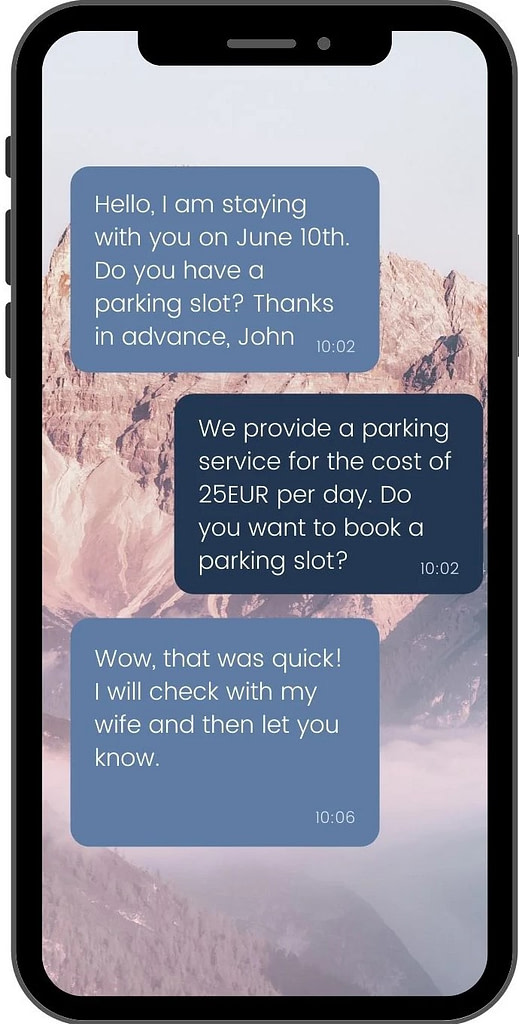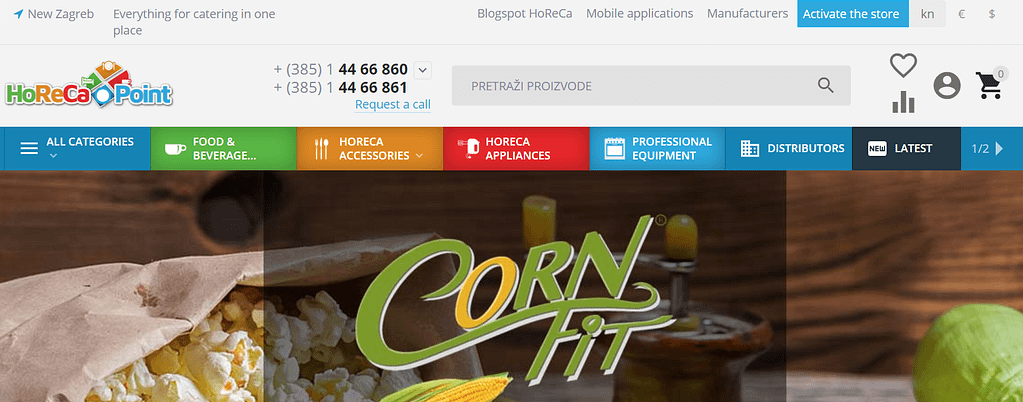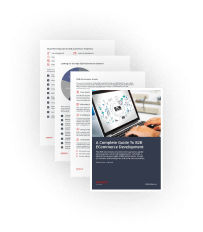Hospitality market has been impacted by COVID-19. However, the pandemic acted as a black swan, forcing the industry to adopt new ways to drive customers. A recent report of ReportLinker claims that the global hospitality industry is growing from $3486.77 billion to $4132 with the major players like McDonald’s, Compass Group Plc, Starbucks, Subway, and Marriott International. We decided to find out what helps the key players expand, with a particular focus on the role of ecommerce strategies in the hospitality sector..
What is hospitality industry
Hospitality business includes not only hotels, but also food and beverage services as all these activities are closely related. Accommodation, lodging, preparing meals, snacks or beverages for immediate consumption, – all these services indicate the hospitality attribution.
Stats behind hospitality industry
- According to the ReportLinker report “Hospitality Global Market Report 2021: COVID 19 Impact and Recovery to 2030”, the hospitality industry grows with a revenue of 5 billion in 2021 and an annual growth rate of 18.5%.
- The market is expected to reach $5297.78 billion in 2025 at a CAGR of 6%.
- Asia Pacific takes a leap within the global hospitality market, accounting for 45% of the market in 2020.
- North America is the second largest region with a 25% share of the global hospitality market.
- Africa is the smallest region in the global hospitality market.
- According to AHLA’s report, hotel occupancy in the U.S. will expand from 44% to 52% in 2021, and further to 61% in 2022.
This increase is due to the companies rethinking operations to recover from the COVID-19 impact. They turned social distancing, remote working, and the closure of commercial activities into benefits for them, introducing new activities and adopting new technologies to drive customers.
Technologies transforming the hospitality industry
The major players apply technologies to transform the customer experience. These technologies have proved their potential of improving the service and saving costs due to more efficient use of resources. The most considerable innovations include the use of near field communication (NFC) technology, infrared (IR) technologies, and robots. With NFC, customers can pay with their mobiles instantly and securely. IR sensors allow detecting the body heat to know whether somebody is present in the room or not to help housekeepers to not to disturb guests when they are in the room. Robots, another significant aspect of ecommerce in hospitality, can deliver amenities and perform other tasks to improve customer satisfaction.
What can be done for eCommerce hospitality sites
VR and AR
Virtual and augmented reality is rapidly penetrating the eCommerce sites offering a greater visualisation to visitors before they visit a hotel in real life. The Strand Palace Hotel from London provides their guests with an option of navigating through their restaurant, gym and other facilities virtually, without ever even setting foot in the hotel.
Virtual tours of the hotel building on the hotel’s website can reduce customer friction and entertain at the same time. With the panoramic views and 360 degree images of the interior, guests can explore the premises and take a more informative decision about visiting your place.

Chatbots

Chatbots are a new version of the FAQ section but with a more intelligent and automated approach. They can help to communicate instantly without delay and increase the chance of the purchasing decision. Besides, a chatbot can answer most common issues, up-sell and cross-sell services, drive direct booking, and offer support throughout the booking journey.
A good chatbot should allow for multi-channel features and be integrated not only as a widget on your site, but in other messaging systems also. Such a chatbot should support personalization options, check-in and check-out functions, concierge service, feedback collection, machine learning, and multiple languages. With all these features available in your chatbot, you can easily replace or reduce your Customer Support staff and add value to your customers.
Big data
Using big data can help hoteliers to get the best possible room rates from travelers. Take an example of Marriott. Analyzing weather reports or local events, they were able to forecast demand to calculate the value of individual rooms during holiday and off-season periods.
With big data sets, you will be able to predict traveler flows and adopt your prices and promos. For instance, your potential customer lives in New-York but wants to travel to Italy for a holiday. Big data will allow you to predict the onset of the cold weather in New-York and the hot weather in Europe. Having this data with you, you will take a more informative decision on your pricing policy augmenting or reducing the room costs when it is appropriate.
Must-have features of eCommerce hospitality sites
Tracking customer behaviour on your eCommerce hospitality site is essential. That’s why Google Analytics can help to form your customer persona to understand your audience and come up with an offer that will suit them better.
Retargeting existing customers will retain them with you. The customer journey is complex. It can start from the search, then continue in social networks, hotel sites, and recommendation services. Hospitality brands can retarget visitors to narrow the margin of lost sales.
With a personalized approach hotels can monitor individual customers when they enter their sites, and tailor their offers based on customer behavior. For example, if your audience is looking for family-friendly hotels, you can show special offers related to the search. It can be done across a variety of channels, including email.
Social proof is a great tool to encourage those who are in doubt. The user-generated reviews and testimonials convince others customers to commit to a purchase. By sharing customer words in emails or on your website, hospitality brands can remove any concerns that shoppers might have with authentic testimonials.

How to get the most
The eCommerce hospitality industry grows, the competition is high. It is difficult to stand apart from big players. Try to capitalize on psychological triggers. Use storytelling, build a sense of community. Customers are human beings. They have similar needs, fears and desires, and the online marketplace is the perfect place to trigger these senses. How can you do that? Apply ticker counters to denote how many rooms are available for certain dates. The countdown will add a FOMO (fear of missing out) effect and motivate buyers for action.

